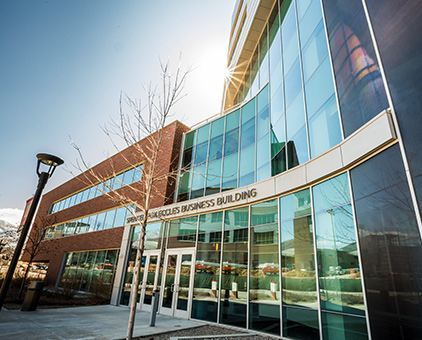Multi-Disciplinary Design
Learning Abroad
17
Average
Class Size
Courses
Community
Getting Started
Get to know other students in your Design Foundation courses:
- Participate in labs & workshops
- Attend group presentations, lectures, & community events
Making Progress
- Take advantage of access to the community of faculty & design students in the program
- Get to know alumni & prospective employers who participate in project reviews & class lectures
- Join & support the student organization for design students
- Consider a local or international internship to broaden your connections to leaders & peers in the profession
Finishing Up
- Work with faculty & alumni to create meaningful connections in the professional design world across campus and the greater community
Knowledge & Skills
Getting Started
- Develop your skills in DF workshops & labs; work on projects ranging in scale from the city to the object
- Attend lectures by professionals & industry leaders in our lecture series
- Connect with the DF peer mentors
Making Progress
- Apply to the program
- Take support courses designed to align you with the industry standards for design
- Begin studio courses to build your portfolio and give you direction
- Choose a focus in product design: physical, digital, or both
Finishing Up
- Take senior level studios with real industry partners & product opportunities
- Go deeper with faculty-led workshops to develop specific design skills
- Apply for internships
Transformation
Getting Started
- Explore related programs on campus like the Bennion Center
- Consider adding a minor to your degree
- Explore opportunities at Lassonde
- Identify as a design student & participate in city events supporting the creative culture of SLC
Making Progress
- Participate in learning abroad programs such as the Architecture, Design, & Planning program in Volterra, Italy
- Work on thesis & senior project ideas
- Work with other design students to consult on a broad range of projects from students around campus in different majors
Finishing Up
- Finish up internships & create relationships in the industry
- Complete senior project & thesis work
- Apply for jobs and/or grad school
- Mentor younger students as they enter the program
Impact
Getting Started
- Design, build, draw, & present your work in DF courses
- Attend lectures & ask questions around your interests in design
- Visit museums & other cities to gain further knowledge surrounding the design profession
Making Progress
- Create work from studio projects that reflect an ethic of care & responsibility in design
- Work on design ideas that impact communities
- Learn to prototype & test design ideas in real world applications through your courses and in internships
- Solicit feedback from professionals & faculty as you shape your design process for the professional world
Careers
Getting Started
- Attend Design lectures & reviews throughout the semester to hear professionals talk about their work
- Meet with Design faculty to discuss potential interests
- Learn the culture of the design profession from senior & other student mentors
Making Progress
- Attend Design portfolio workshops & information
- Work on your portfolio & resume
- Use learning abroad opportunities such as Study Abroad in Scandinavia to connect with design professionals internationally
- Work closely with faculty as you shape your interests to deepen your knowledge in a specific field
- Participate in student design organization to gain peer-based connections
Finishing Up
- Find & connect with a professional mentor
- Shadow a design professional for a day
- Work with program directors & faculty to make connections in areas of interest
Start Your Career Journey
Find support at the Career and Professional Development Center (CPDC)
About the Major
Multi-Disciplinary Design at the University of Utah is highly influenced by our context in the Wasatch Front and the landscapes of the West. This program teaches you how to ethically respond to the needs of people and the environment by using a creative process-based approach that prepares you to compete in an increasingly complex work environment. You'll gain a foundation in product design including areas like history, theory, practical application, and studio and then select a product track "digital, physical, or platform" based on your interests, passions, and future goals. In the development of design process, you'll learn how to implement ideas in a strategic manner and always question the status quo. You'll work closely with qualified academics and professionals and have opportunities for travel and community engagement all while gaining exposure to high craft, grounded research, foundational ethics, leadership skills, and new technologies. Our program is about thoughtful design, careful interventions, and designing both products and the relationships around them.
Learning Outcomes
- Develop and refine an iterative design process and a high level of craft.
- Develop both qualitative and quantitative design research skills and translate those skills to design interventions.
- Learn sophisticated communication methods, both physical and digital.
- Become familiar with concepts in entrepreneurship, business modeling, and analysis techniques.
Plan & Prepare
At the U, we plan for our students to have an exceptional Educational Experience identified by four broad categories we call the Learning Framework: Community, Knowledge & Skills, Transformation, and Impact. This major map will help you envision, explore, design, and plan your personalized Exceptional Education Experience with the Learning Framework at the core. In addition to assisting you in planning your coursework and navigating the requirements of your major, this map will help you incorporate other kinds of experiences to expand your knowledge, support your development, and prepare you for the future you want.


